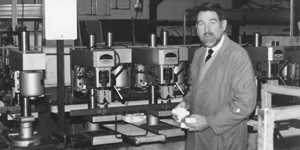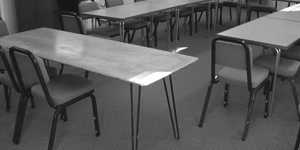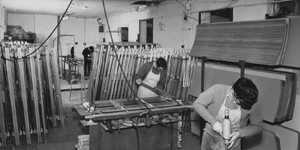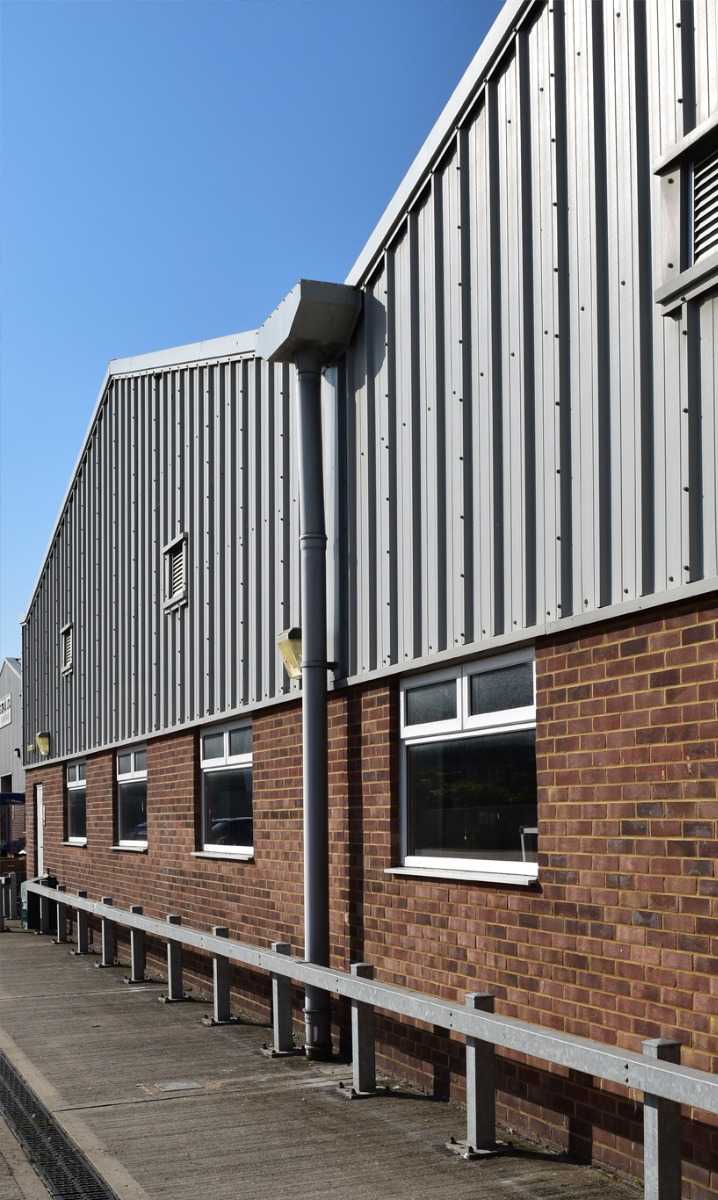Sustainability

Even when we were a start-up business in the 1950s, the ethos and philosophy of the company was to make furniture that was built to last, provide value for money and answered the need for space-saving solutions. Nothing has changed decades on.
With the consistent and steady growth of the business, through the development of innovative products and continual investment, we have been able to achieve our goal of manufacturing excellence. From the outset, we have quietly embraced sustainability and have been practising, without realising it, circularity for years. (The term didn’t exist in 1954!)
By acting responsibly, making the right choices during product development and sensible decisions regarding production and operational processes, we have been able to provide positive outcomes for our customers, our employees and the wider community. Through our continuous improvement programme, we have implemented Quality, Environment and Social Responsibility systems and policies, with QMS and EMS being accredited to the relevant standard.
Waste Management
It is nearly impossible to make something without there being an element of waste somewhere in the production cycle. Strict recycling waste streams have been adopted for a large proportion of our waste and we have successfully removed any instances of waste going to landfill. Packaging resulting from goods inward which includes cardboard and polythene, both of which are baled for transit are sent for recycling. Clean aluminium off-cuts are collected in a specific skip which is accumulated and then sent for recycling. All waste wood (pallets that cannot be recycled) is collated and collected by a wood recycling scheme. Changing the method for wood recycling has reduced the number of skips used for general waste dramatically which is collected by a waste carrier who guarantees zero waste to landfill.
For many years our staff drinks dispensing machine only issued plastic cups. Schemes for the recycling of plastic cups have come and gone illustrating the fragility of the UK’s commitment to recycling. As soon as we were able, we switched to paper cups and these were sent for recycling through the National Cup Recycling Scheme. Unfortunately, this scheme failed and is no longer available. In 2023 we switched to a drinks vending machine which can dispense into your own cup. A cold water dispenser has also been provided to allow staff to fill up their own reusable water bottles. Since the introduction of the new drinks dispenser, our cup waste has reduced dramatically.
Energy Savings
Minimising our carbon footprint is embedded in our day-to-day practices.
These include but are not limited to:
• Deliveries made using a carrier network leading to geographical delivery efficiencies along with negating the need for a fleet of own
vehicles.
• Installation of LED lighting across our premises reducing both electricity usage and cost.
• Investment in solar photovoltaics (PV) panels was first undertaken in 2012 and a further 250 panels were installed in July 2022 –
leading to a considerable reduction in both electricity usage and cost. (47% energy independence in summer months – 30% reduction
in KwH usage.
• A companywide “turn off the lights” policy.
• 95% of employees live locally with no one travelling further than 15 miles to work.
• The Bike2Work scheme is available to everyone to encourage employees to cycle to work.
• All correspondence and communication conducted electronically.
• Reduction in travel costs and emissions by sales personnel working remotely
Goals & Objectives
• Communicate goals and targets externally through our Environmental Policy.
• Measure progress and successes.
• Improve existing processes and practices by reporting energy usage to the whole team for greater visibility.
• Champion employee engagement and empowerment.
• Identify and build a sustainability strategy that fits our business.
In Conclusion
Gopak is already well into its sustainable journey having successfully completed infrastructure upgrades. We will continue our commitment to identify and deliver operational efficiencies, encourage changes in employee behaviours and measure and communicate energy usage including wastage and savings. Our aim is to continue to produce products that have a long shelf life, are designed and made using recycled content, are packaged using packaging with a minimum 30% recycled content while operating clean manufacturing processes.








